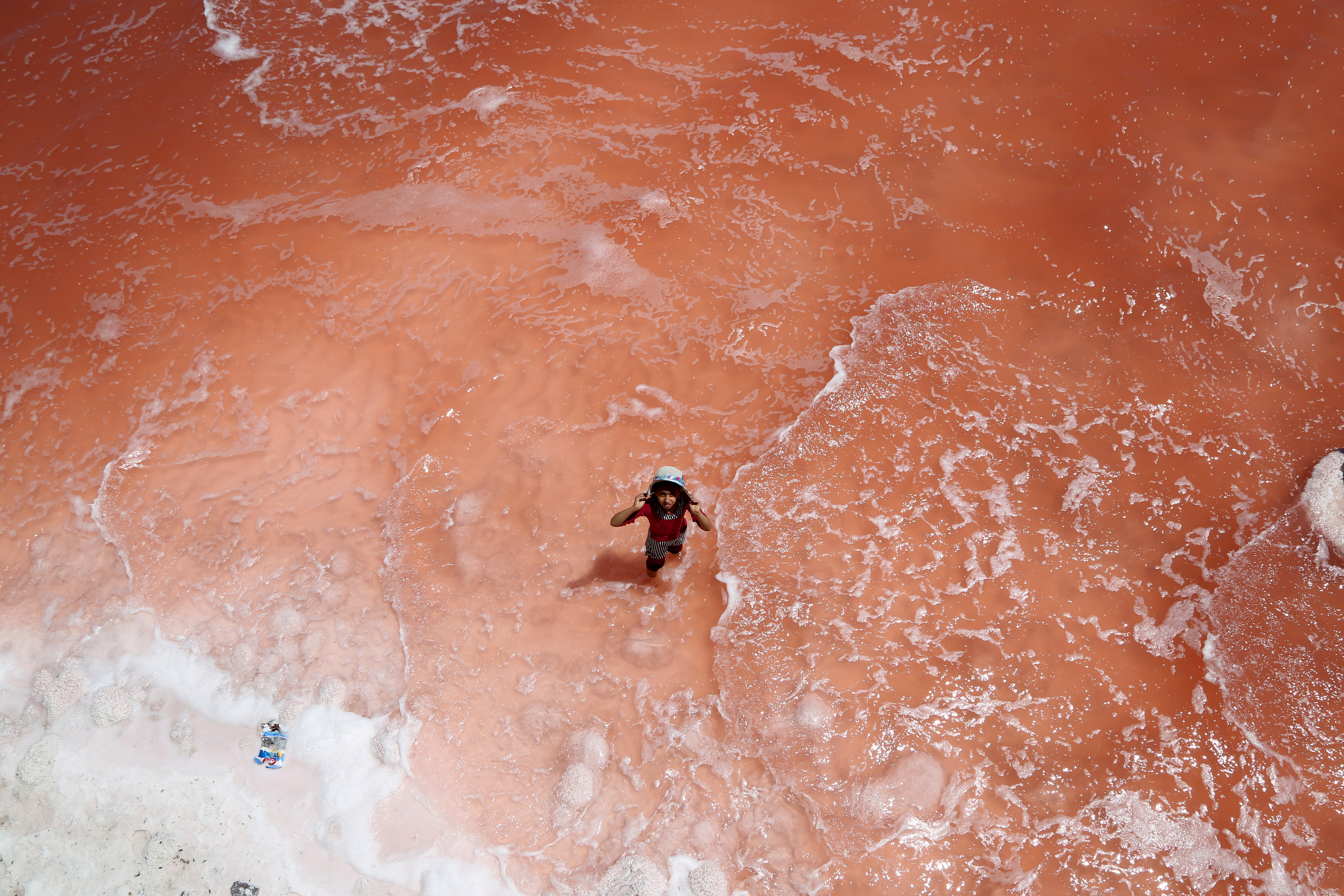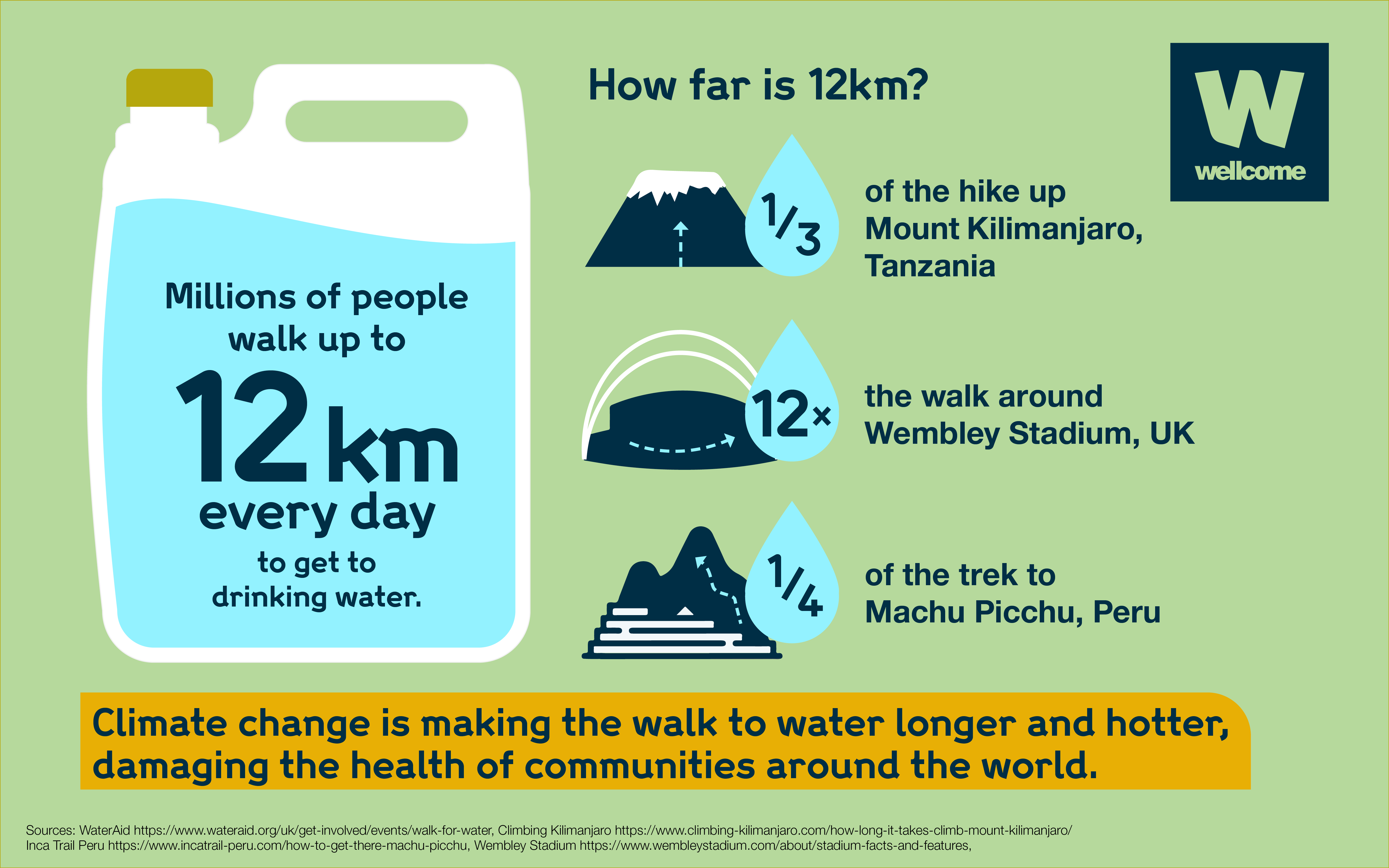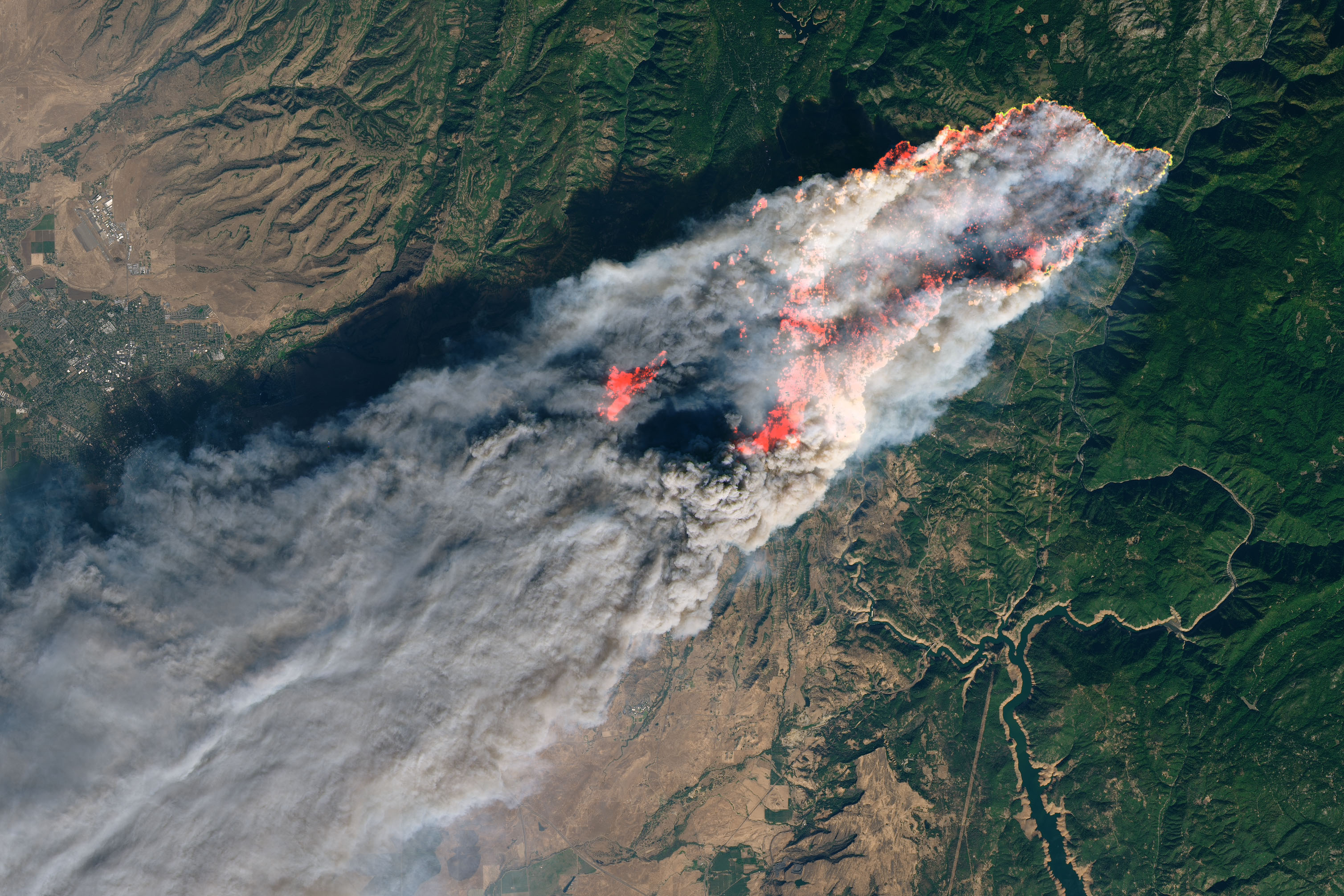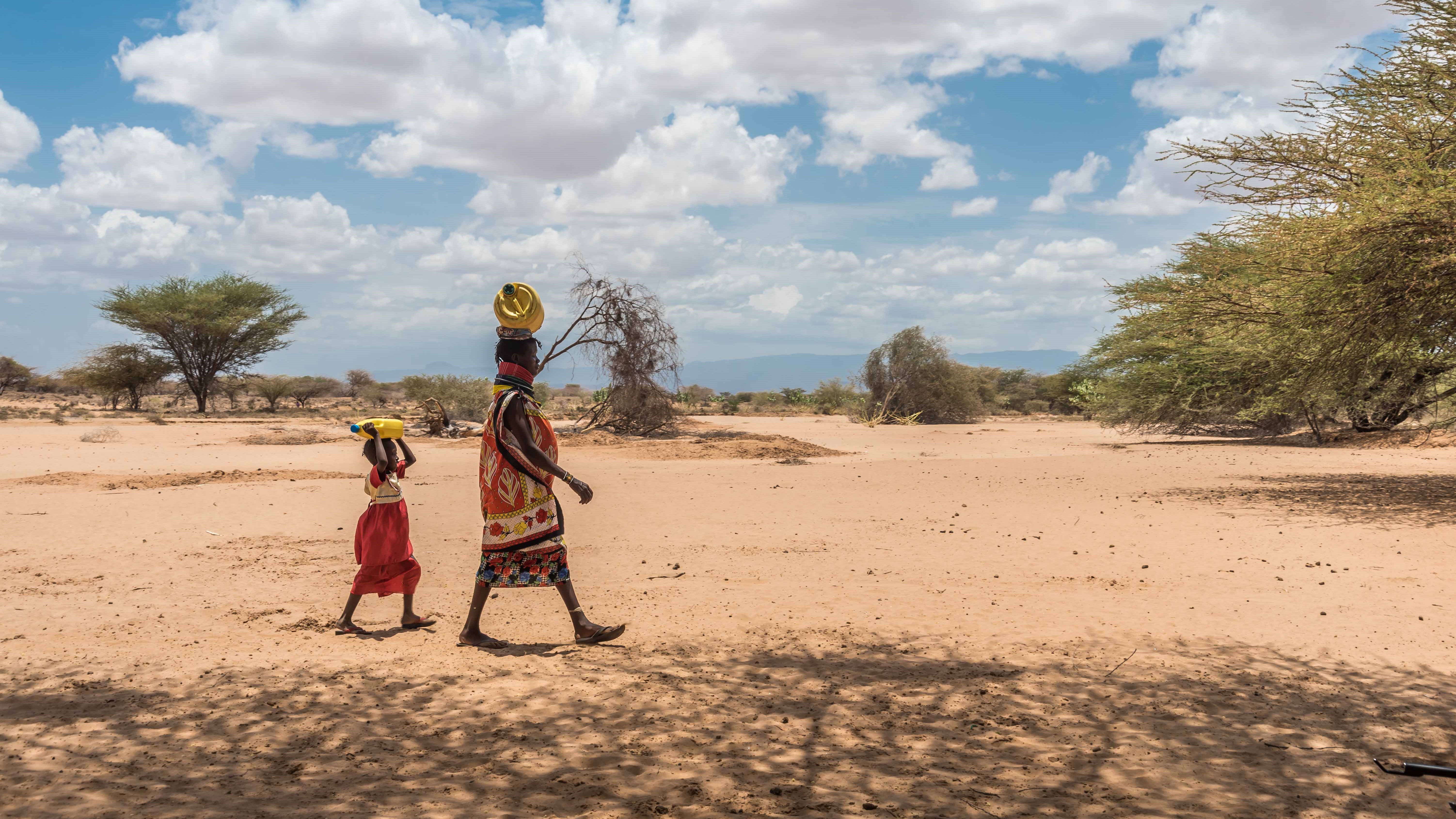As the climate crisis intensifies, it shrinks and contaminates the water we rely on. We need to act now to reduce the existing and emerging threat that this poses to our health.

A drone photo shows a person in Lake Urmia, one of the biggest saltwater lakes in the world located in the northwest of Iran.

- With 2°C warming, up to three billion people are projected to experience chronic water scarcity.
- Water scarcity impacts health in many ways, including human displacement, poverty, disease and food insecurity.
- We need immense political action, greater financial investment and a whole of society approach to fight climate change, and protect Earth’s freshwater and people’s health.
Safe water is a basic human right and essential for our health, whether we use it for drinking, food production or hygiene. But it’s also a finite resource.
Only around 3% of Earth’s water is freshwater, most of which is in frozen glaciers, ice caps or deep underground.
As climate change accelerates the frequency of extreme weather events and higher temperatures, our freshwater supply grows smaller and the risks to people’s health greater.
It’s one of many reasons why the world is running out of water. From an increasing population that demands more food and energy, to extensive use in agriculture and industry – stress on water is rising.
Water scarcity can cause human displacement and poverty. Contaminated water can transmit diseases like diarrhoea, cholera and polio. And for millions of women and children, the physical strain of walking up to 12 kilometres a day to collect water endangers their health.

Sources: WaterAid https://www.wateraid.org/uk/get-involved/events/walk-for-water Climbing Kilimanjaro https://www.climbing-kilimanjaro.com/how-long-it-takes-climb-mount-kilimanjaro/ Inca Trail Peru https://www.incatrail-peru.com/how-to-get-there-machu-picchu Wembley Stadium https://www.wembleystadium.com/about/stadium-facts-and-features

In California, devastating droughts and surging temperatures have affected the water cycle. These extreme weather events have led to greater evaporation and changing rainfall patterns. The US state experienced it’s driest three years on record between 2019 and 2022.
While severe storms in 2023 filled previously depleted reservoirs, groundwater reserves remain critically low. Today, nearly one million Californians are affected by failing water systems.
Most cities have made investments to diversify their water supply and expand conservation efforts, but smaller rural communities that rely on wells are increasingly vulnerable. Many Californians rely on drinking water that may contain chemical contaminants. Drought can further increase these contaminants, while fire damage to the well equipment can add toxic chemicals to the water.
The changing water is already harming people’s health. For example, following the 2018 Camp Fire in Butte County – California’s most destructive wildfire in history – chemical contamination of the drinking water system resulted in health risks and restrictions on water use. In a survey of more than 200 households following the fire, 54% self-reported that at least one member in their household experienced anxiety, stress or depression in connection with securing safe water and contamination issues.

The California Camp Fire seen from the Landsat 8 satellite on November 8 2018.

Nine thousand miles from the Californian crisis, Kenyans are facing even greater climate-related water shortages and the severe health risks that come with it.
Kenya contributes less than 0.1 per cent of global greenhouse gas emissions annually but like many low-emitting countries, it is disproportionately affected from the effects of the climate crisis.
Extensive drought has led to extreme food insecurity [PDF 34.8MB]. Ngawosa Eregai, a Community Health Worker in Turkana County, says: “The biggest challenge we have is lack of water.”
Four or five people have to use their hands to dig deep holes in the ground where the rivers used to be to get to water. “We drink this water because we do not have a choice,” says Ngawasa. “We trust that it will not be harmful.”
For Esther Elaar, who fetches and carries water for her family to use every day, the four-hour walk weighs on her physical health. “My whole body feels sore,” she says. “I usually carry 20 litres of water at a time because the water point is far off.”
The long and hot walk to water impacting pregnant women like Esther. Their babies are dying before they’re born.
“While carrying water, I feel the baby in my womb moving,” Esther says. “A lot of women have miscarried in this area while going to look for water.”

Esther Elaar, a pregnant mother from Kenya, fetches and carries 20 litres of water for her family to use every day. Source: https://www.bbc.co.uk/mediaaction/our-work/climate-change-resilience/living-climate-change/kenya-maternal-health

Esther’s story is just one of millions.
The groundwater in Germany which supplies almost 70% of the country’s drinking water is declining. Iran’s retreating Lake Urmia grows saltier as it shrinks and affects the water, soil and clean air available to local villagers. And prolonged droughts in Peru damage agriculture and access to clean water in Indigenous communities.
The climate crisis is transforming water on Earth and the health impacts reach far and wide.
With just 2°C warming, up to three billion people are projected to experience chronic water scarcity. It’s projected that current policies around the world will result in around 2.7°C warming above pre-industrial levels. But we have the knowledge and tools to prevent that from happening.
It involves implementing strategies such as conserving water and restoring freshwater ecosystems like wetlands. To achieve that, we need immense political action, greater financial investment and a whole-of-society approach.
At Wellcome, we’re working with the people most affected by climate change to support critical research, tools and resources. If we act collectively now against climate change, we can protect our water and our health.
This article was first published on 1 June 2022.
We’re funding vital research into the impact climate change has on human health around the world, at national, regional and global levels. Explore our current funding call:
Advancing climate mitigation solutions with health co-benefits in low- and middle-income countries
As the climate crisis intensifies, it shrinks and contaminates the water we rely on. We need to act now to reduce the existing and emerging threat that this poses to our health.